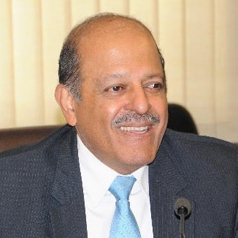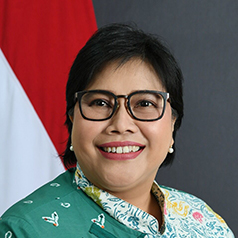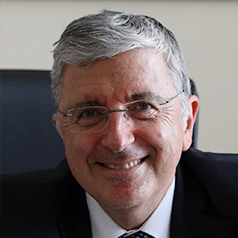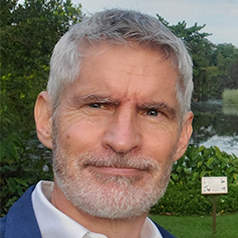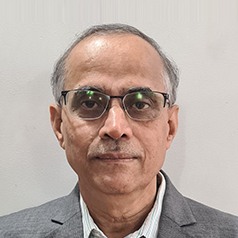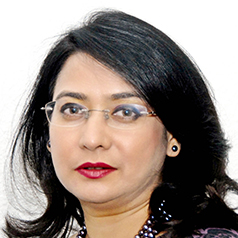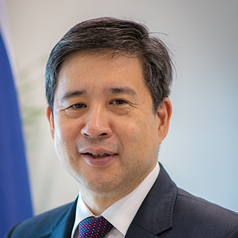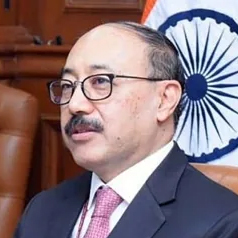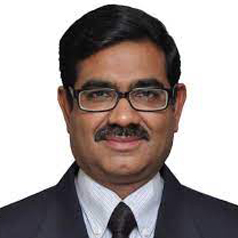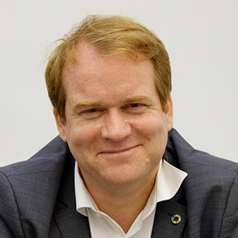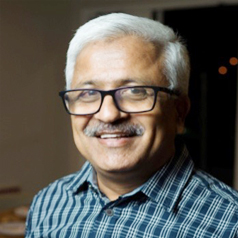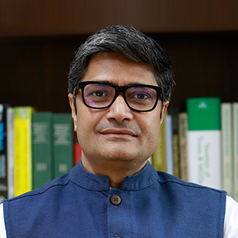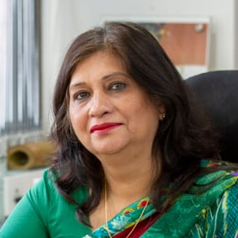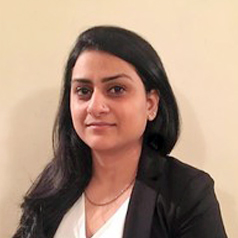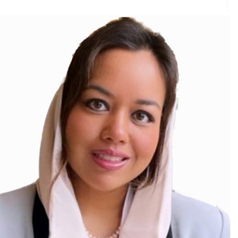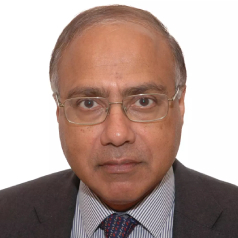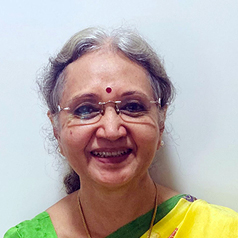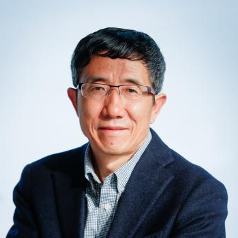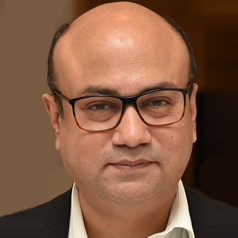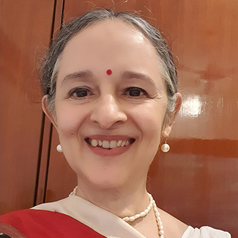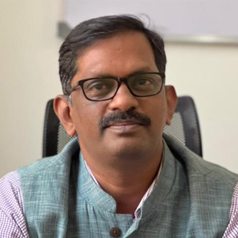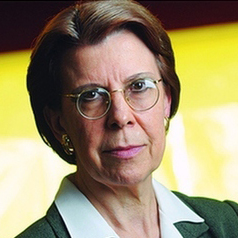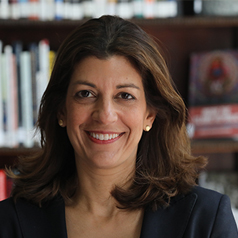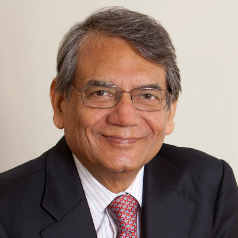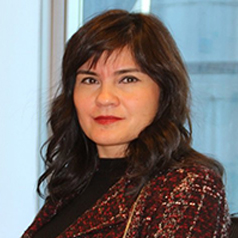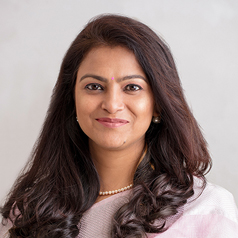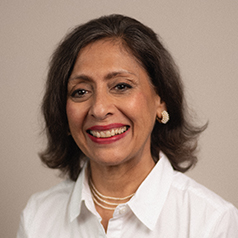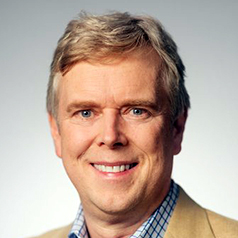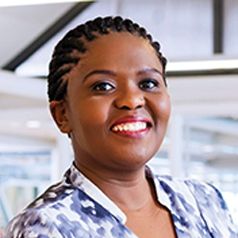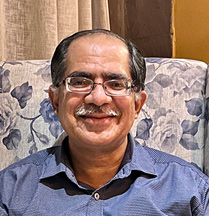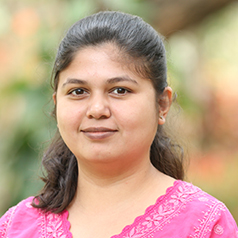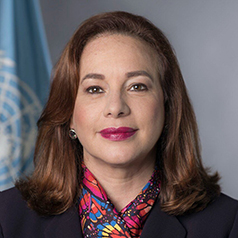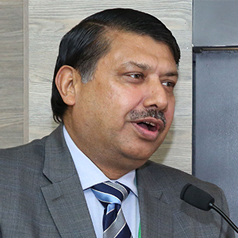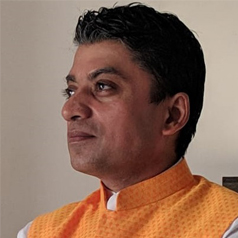10th May, 2023
|
| Time |
Session |
|
17:40 – 18:30 |
Inaugural session
Welcome Address
Jaibal Naduvath, Vice President and Senior Fellow, Observer Research Foundation (ORF), India
Special Address | At the heart of the Indo-Pacific: Why Mumbai Matters?
Manjeet Kripalani, Executive Director, Gateway House, India
Opening Address
Sujan Chinoy, Director General, Manohar Parrikar Institute for Defence Studies and Analyses (MP-IDSA) and Chair, T20 India Core Group
Keynote Address | Continuity and Cooperation: Navigating Shifting Dynamics
Ina Krisnamurthi, Ambassador of Indonesia to India
Vincenzo De Luca, Ambassador of Italy to India |
| 18:45 Onwards |
Gala Dinner & Cultural Evening |
11th May, 2023
|
| Time |
Session |
| 10:00 – 10:20 |
Keynote Address | A Mid-Year Review: Taking Stock and the Road Ahead
Amitabh Kant, G20 Sherpa, India |
| 10:20 – 11:10 |
Panel Discussion: G20 and the Global South: New formats for cooperation on SDGs
The G20 as a grouping is poised for a fundamental shift. Starting with the Indonesian presidency in 2022, this is the first time emerging economies will hold the grouping’s presidency for four consecutive years. This represents a unique opportunity to shape the priorities of the grouping to align with the interests of the Global South. Being some of the fastest growing economies in the world, the Indian G20 presidency, followed by the Brazilian and the South African presidency can make progress in achieving the Sustainable Development Goals (SDGs) in an inclusive manner that accounts for the realities of many developing countries. The Indian G20 presidency has highlighted the importance of ‘Data for Development’ in order to identify the gaps and attain SDGs in a comprehensive manner. What are the unique challenges faced by emerging economies while achieving SDGs? How can data accelerate progress towards attainment of SDGs? How can countries mobilise finance for sustainable development?
Speakers:
Elizabeth Sidiropoulos, Chief Executive, South African Institute of International Affairs, South Africa
G.A. Tadas, Visiting Fellow, Research and Information System for Developing Countries (RIS), India
Fahmida Khatun, Executive Director, Centre for Policy Dialogue (CPD), Bangladesh
Fabio Veras Soares, Head of International Policy Centre for Inclusive Development (IPCid), Institute for Applied Economic Research, Brazil
Moderator:
Axel Berger, Deputy Director (interim), German Institute of Development, and Sustainability (IDOS), and Managing Director, Sustainable Development Solutions Network (SDSN), Germany
|
| 11:10 – 11:25 |
Keynote Address | Towards a Sustainable Future: G20 and Sustainable Development
Harsh Shringla, Chief Coordinator (G20), India |
| 11:25 – 12:15 |
Panel Discussion: Maximum Cities: Urban Habitats, Growth and Sustainability
The decade of 2030 marks an inflection point in the trajectory of collective action for achieving the Sustainable Development Goals (SDGs). However, the prolonged impact of the COVID-19 pandemic has slowed the pace and diverted the path of this trajectory, making the prospects of a green, resilient and inclusive recovery elusive. Being the engines of innovation and growth and hubs of international trade, sustainable and inclusive growth of cities is a requisite for global sustainability. There is an urgent need to galvanise local leadership and resources and align local governance and planned urbanisation for developing innovative solutions for global goals. What key priorities must cities address to account for the larger goals of resilience and sustainability? How can urban planning, technology, and ancillary efforts address gender and age equality? What are the suitable financial models and policy interventions to promote inclusive and sustainable cities that promote economic growth and job creation? What policies and regulatory and legal frameworks must underpin multi-stakeholder approaches to a circular economy?
Speakers:
Nicolas J.A. Buchoud, Co-Founder and President, Grand Paris Alliance for Metropolitan Development, France
R. Balasubramaniam, Member (HR) at the Capacity Building Commission, Government of India, India
Lukas Lingenthal, Policy Advisor, Mobility, Urban and Rural Development, Konrad-Adenauer-Stiftung, Germany
Harshita Narvekar, Municipal Councillor, Mumbai, India
Chandra Bhushan, CEO, iFOREST (International Forum for Environment, Sustainability and Technology), India
Moderator:
Anusha Kesarkar-Gavankar, Senior Fellow at ORF’s Centre for Economy and Growth, India |
| 12:15 – 12:30 |
Tea/ Coffee Break |
| 12:30 – 13:20 |
Panel Discussion: Leveraging G20 and COP 28 for People-Centric Energy Transitions
India’s G20 presidency is an opportune moment to spearhead collective action and drive international cooperation towards mitigating climate change and set the ambition for COP28. The G20 principles for ‘people-centric energy transitions’ also aligns with the 2030 Agenda for Sustainable Development and can be relevant to COP processes. This could have a positive impact on the effectiveness of the COP processes by creating a common language for energy transitions across a broader set of countries. Women are at the center of ‘people-centric energy transitions.’ The climate crisis exacerbates existing gender inequalities. Evidence exists that improving women’s access to energy and enhancing their economic participation can lead to better environment and climate outcomes. Therefore, mainstreaming gender parity considerations into climate and environmental policies, including budgets, procurement and regulatory initiatives, is critical to not only ensure a just and sustainable transition pathway but also to accelerate and drive the green transition imperative. How can G20 and COP 28 work in tandem to achieve the new collective goals on climate finance? How can they create a conducive environment for gender-sensitive and responsive policies, strategies and actions?
Speakers:
Saehee Jeong, Senior Climate Diplomacy Associate, Solutions for Our Climate, South Korea
Vibha Dhawan, Director General, The Energy and Resources Institute (TERI), India
Suranjali Tandon, Assistant Professor, National Institute of Public Finance and Policy, India
Noura Mansouri, Research Fellow, King Abdullah Petroleum Studies and Research Center, Saudi Arabia
Moderator:
Amar Bhattacharya, Senior Fellow, Centre for Sustainable Development, Brookings USA, USA |
| 13:20 – 14:35 |
Lunch |
| 14:35 – 15:25 |
Panel Discussion: Mission LiFE and the Agenda for Sustainable Development
Mission LiFE, an India-led global mass movement to nudge individual and community action to protect and preserve the environment, is embedded in the principles of the Sustainable Development Goals. It contributes directly and indirectly to almost all the SDGs, through focus on sustainable cities and communities (SDG 11), responsible production and consumption (SDG 12), climate change (SDG 13), life on land (SDG 15), and life under water (SDG 14), which emphasise that all individuals ensure their lifestyles are in sync with the resources available on the planet. How can Mission LiFE transform the present ways of consumption and enable industries to shift to sustainable production techniques? How does Mission LiFE, which stresses sustainable consumption and climate-friendly lifestyles, balance the needs of developing countries which need to prioritise economic growth and increase in consumption? What is required to ensure the principles of LiFE can endure and have a long-term impact globally?
Ashish Kumar, Senior Fellow, NITI Aayog, Government of India, India
K. Seeta Prabhu, Visiting Professor and Senior Advisor (SDGs), Tata Institute of Social Sciences, India
Florencia Sachetti, Senior Coordinator, Social Protection Programme, CIPPEC, Argentina
Li Xiaoyun, Chair Professor, China Agricultural University (CAU), China
Moderator:
Nilanjan Ghosh, Director, Centre for New Economic Diplomacy & ORF Kolkata Centre |
| 15:25 -15:40 |
Tea/ Coffee Break |
| 15:40 – 16:30 |
Panel Discussion: Navigating Choppy Waters: The G20’s Role in Ensuring International Financial Stability
The recent failure of Silicon Valley Bank demonstrates that the global financial and monetary system is still vulnerable to external shocks, especially for the emerging markets and developing economies. With limited fiscal space and high financial market volatility, exit strategies from exceptional monetary, fiscal and regulatory policies need to be based on careful assessment. There is a need to better coordinate and communicate fiscal and monetary policies among countries to address spillover risks. Can the G20 spearhead a global banking framework to prevent global contagions and insulate emerging economies? What role should regulators play in ensuring the stability of the financial system and preventing future failures of financial institutions? What role do global central banks play in preventing and managing future crises?
Speakers:
Ashima Goyal, Emeritus Professor, Indira Gandhi Institute of Development Research (IGIDR), India
Miguel Otero Iglesias, Senior Analyst, Elcano Royal Institute; Professor at IE School of Global and Global Public Affairs, Spain
Albert Park, Chief Economist, Asian Development Bank
N. R. Bhanumurthy, Vice-Chancellor, Dr. B.R. Ambedkar School of Economics University, Bengaluru (BASE University), India
Discussant:
Gülbin Şahinbeyoğlu, Center Director, Economic Data Analysis Center, TEPAV, Türkiye
Moderator:
Rajat Kathuria, Professor, Economics and Dean, School of Humanities and Social Sciences, Shiv Nadar University, India |
| 16:30 – 17:20 |
Panel Discussion: Trust, Integrity, Resilience: Rethinking Globalisation
As countries grapple with supply chain disruptions in the wake of the combined health, financial, and food crisis, the question that policymakers and the G20 can address remains how can we reform multilateral institutions to be better prepared for global challenges? An increasing number of countries are looking inwards and seeking to build self-reliance in order to minimise the cost of future challenges. Going forward, the world is likely to face disruptions caused by the weaponisation of dependencies, as well as challenges stemming from climate change. In the face of these challenges, global institutions have failed to fulfill their objectives and curb the negative fallouts from these events. How should global institutions be revamped to face modern day challenges? Is this the end of globalisation and a shift towards self-reliance especially in critical sectors? How can countries cultivate resilient supply chains? Should countries build greater economic alliances with ‘like-minded’ partners and reinvent globalisation to fit the times?
Speakers:
Sujan Chinoy, Director General, Manohar Parrikar Institute for Defence Studies and Analyses (MP-IDSA) and Chair, T20 India Core Group
Feodor Voitolovsky, Director, IMEMO, Russia
Vera Helena Thorstensen, Head, Center for Global Trade and Investment Studies, FGV, Brazil
Leslie Vinjamuri, Director, US & Americas Programme; Dean, Queen Elizabeth 2 Academy, Chatham House, UK
Moderator:
Rakesh Mohan, President and Distinguished Fellow, The Centre for Social and Economic Progress (CSEP), India |
| 17:20 – 17:30 |
Tea/ Coffee Break |
| 17:30 – 19:30 |
Task Force Meetings [TF1 – TF7] |
| 19:30 onwards |
Dinner |
12th May, 2023
|
| 9:00 – 11:00 |
Task Force Meetings [TF1 – TF7] |
| 11:10 – 12:00 |
Panel Discussion: Reforming the Think20: From Ideas to Action
Since its inception in 2012, the T20 has established itself as a global forum for reviewing evidence-based policies and proposals while helping refine and promote the G20’s priorities by weaving a coherent, multilateral narrative that is based on international cooperation and understanding. For the T20 to be successful, it should be built on a foundation of transparency and accountability. ‘Reforming the T20’ was a Task Force under the Italian presidency in 2021, which collected ideas and proposals to reform and enhance the T20 process on three pillars; governance and financing; diversity, inclusion and regional context; quality timing and impact. What progress has been made in achieving these objectives? How can the T20 adapt to the constantly shifting geopolitical contexts and a world in flux and crisis? As the ‘idea bank of the G20’ how can it strengthen its links with the G20 process and structures to be more impactful? How can it communicate its ideas to a wider audience and adapt to the digital era?
Speakers:
Tetsushi Sonobe, Dean and CEO, Asian Development Bank Institute (ADBI)
Renato Baumann, Senior Researcher, Institute for Applied Economic Research, Brazil
Gülbin Şahinbeyoğlu, Center Director, Economic Data Analysis Center, TEPAV, Türkiye
Erin Watson, Managing Director at Baker & York, Adjunct Research Fellow at the Griffith Asia Institute, Australia
Moderator:
Manjeet Kripalani, Executive Director, Gateway House, India |
| 12:00 – 12:50 |
Panel Discussion: Responsible Digital Public Infrastructure: Approaches, Lessons and Possibilities
Digital Public Infrastructure (DPI) comprises foundational digital building blocks and scaffolding that drive innovation, inclusion, and competition at population scale, and have the potential to transform societies in ways previously unimaginable. India’s DPIs, powered by India Stack, have been instrumental in solving many of the challenges that AI and other emerging disruptive technologies (EDTs) are currently being used to address in other parts of the world. The demonstrated success of the DPI model is comparable to the transformative potential of AI that is currently being discussed globally. India’s experience with DPIs can positively inform and influence the development of AI- and other EDT-based solutions in other parts of the world. How might governments and other non-governmental institutions be encouraged to build responsible DPIs? How does the demonstrated success of the DPI model compare to the transformative potential of AI and other EDTs being discussed globally today? Has the early adoption of DPIs in India, and certain European and South American nations, allowed these countries to develop frameworks for leveraging and implementing EDTs? Can some of these experiences with DPIs inform and influence the development of EDT-based solutions in other parts of the world?
Speakers:
Paul Samson, President, Centre for International Governance Innovation (CIGI), Canada
Baratang Miya, Founder and CEO, Girlhype Women Who Code, South Africa
Sharad Sharma, Co-Founder, Indian Software Products Industry Round Table (iSPIRT), India
Kenddrick Chan, Head, Digital IR in the Information Age project and Research Associate, LSE IDEAS, UK
Moderator:
Stephanie Diepeveen, Research Associate, Bennett Institute for Public Policy, University of Cambridge, UK |
| 12:50 – 13:40 |
Panel Discussion: Demographic Transitions: Navigating a Changing Human Landscape
It is expected that the world’s population will increase by two billion people in 2050, before reaching a peak of 11 billion by the end of the century. In many countries, including sub-Saharan Africa, the working age population is growing faster than any other age group. This allows countries to reap a demographic dividend and progress towards realising their economic potential and development. However, to fully utilise this changing demographic, countries need to make the right investments in education and skills, among other factors. In this context, what are the investments needed to help countries reap the benefits of changing demographics? The current demographic situation across the G20 is very diverse: in almost half of the G20 countries, half of the population is older than 40, while in countries like India, Indonesia, Mexico and South Africa, half the population is younger than 30. What are the health-related challenges associated with a shift in demographics? How can countries address the issues associated with an aging population? What are the impacts of demographic transitions on women and how can women be better equipped to adjust to demographic transitions?
Speakers:
Shambhavi Naik, Head of Research and Chairperson of the Advanced Biology Programme, Takshashila, India
Maria Espinosa, Executive Director, GWL Voices, Spain
Nagesh Kumar, Director, Institute for Studies in Industrial Development (ISID), India
Benjamin William Cashore, Li Ka Shing Professor, Public Management and Director, Institute for Environment and Sustainability (IES), Singapore
Moderator:
Jaibal Naduvath, Vice President and Senior Fellow, Observer Research Foundation (ORF), India
|
| 13:40 – 14:40 |
Lunch |
15:00 onwards
|
Cultural Evening |



